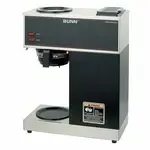
What Does a Hostess Do at a Restaurant, and Does Your Restaurant Need One?
- Understanding the Role of a Restaurant Host
- Host vs. Hostess: Is There a Difference?
- What Does a Restaurant Host Do?
- Size and Layout of Your Restaurant
- Type of Dining Experience
- Reservation and Waitlist Management
- Customer Service Standards
- The Integral Role of a Restaurant Host: Enhancing Guest Experience and Operational Efficiency
- Key Responsibilities of a Restaurant Host
- Assessing the Need for a Host in Your Restaurant
- Conclusion
Understanding the Role of a Restaurant Host
The term "host restaurant" refers to a dining establishment that employs a dedicated host or hostess to manage guest seating, reservations, and customer service upon arrival. A restaurant host plays a crucial role in shaping the customer experience by ensuring a smooth flow of guests, optimizing seating arrangements, and maintaining a welcoming atmosphere.
Many people wonder about the difference between a host and a server in a restaurant. While both positions are integral to restaurant operations, their responsibilities differ significantly. A host is primarily responsible for greeting guests, managing reservations, and coordinating seating, whereas a server is in charge of taking orders, serving food and drinks, and ensuring customer satisfaction throughout the meal.
Host vs. Hostess: Is There a Difference?
The terms "host" and "hostess" are often used interchangeably, with "host" being a gender-neutral term. Both roles involve the same core responsibilities: welcoming guests, organizing seating, and assisting in restaurant operations. Regardless of gender, the position requires excellent communication skills, patience, and the ability to multitask in a fast-paced environment.
What Does a Restaurant Host Do?
A restaurant host serves as the first point of contact for customers, making a positive first impression crucial. Here are the primary duties of a restaurant host:
Greeting and Seating Guests
A warm welcome sets the tone for a guest’s dining experience.
Hosts assess available tables and direct guests to their designated seats.
They provide menus and may explain any current specials or restaurant policies.
Managing Reservations and Walk-Ins
Hosts keep track of reservations, ensuring that tables are available for guests who have booked in advance.
They manage waitlists and estimated wait times, keeping guests informed about seating availability.
Coordinating with Servers and Kitchen Staff
Effective communication with servers helps balance table assignments and prevents overloading certain staff members.
They may relay special requests or dietary restrictions to the kitchen.
Handling Customer Concerns
If guests have complaints about wait times or seating preferences, the host works to resolve these issues professionally.
They may also assist with special accommodations, such as wheelchair accessibility or high chairs for young children.
Maintaining the Ambiance
A host ensures that the entrance and dining areas remain tidy and welcoming.
They may adjust lighting, music, or table settings to enhance the dining experience.
Do You Need a Host at Your Restaurant?
Not all restaurants require a dedicated host, but having one can greatly enhance the customer experience. Here are some factors to consider when deciding if your restaurant needs a host:
Size and Layout of Your Restaurant
Large restaurants or those with multiple dining areas benefit from a host to manage guest flow efficiently.
Smaller restaurants with limited seating may not require a full-time host, as servers can handle guest arrivals.
Type of Dining Experience
Fine dining establishments almost always require a host to maintain a high level of service and organization.
Casual or fast-casual restaurants may not need a host, as guests often seat themselves.
Reservation and Waitlist Management
If your restaurant frequently experiences high traffic and long wait times, a host can streamline the seating process and reduce guest frustration.
Online reservation systems can assist in managing bookings, but an in-person host adds a personal touch.
Customer Service Standards
A host ensures a professional, organized, and courteous guest experience from the moment they walk in.
If your restaurant prides itself on high customer service, investing in a host is worthwhile.
The Integral Role of a Restaurant Host: Enhancing Guest Experience and Operational Efficiency
In the dynamic environment of a restaurant, the host or hostess serves as the pivotal first point of contact for guests, setting the tone for their dining experience. Beyond the initial greeting, the host's responsibilities are multifaceted, contributing significantly to both customer satisfaction and the seamless operation of the establishment.
Key Responsibilities of a Restaurant Host
Greeting and Seating Guests
A warm and friendly welcome is essential as guests arrive. The host assesses the dining area to determine available tables and escorts guests to their seats, ensuring that menus are promptly provided. They may also inform guests of daily specials or specific restaurant policies.
Managing Reservations and Walk-Ins
Hosts are responsible for maintaining an organized reservation system, ensuring that tables are ready for guests who have booked in advance. For walk-in patrons, they manage waitlists, provide accurate wait time estimates, and keep guests informed about seating availability.
Coordinating with the Kitchen and Serving Staff
Effective communication with servers and kitchen staff is crucial. Hosts help balance table assignments to prevent overloading certain sections or staff members. They also relay special requests or dietary restrictions to the kitchen to ensure guest satisfaction.
Handling Customer Inquiries and Concerns
Hosts address questions regarding the menu, restaurant amenities, or policies. If guests have complaints about wait times or seating preferences, the host works to resolve these issues professionally and efficiently.
Maintaining the Ambiance
Ensuring that the entrance and dining areas remain clean and inviting is part of the host's duties. They may adjust lighting, music, or table settings to enhance the overall dining atmosphere.
Assessing the Need for a Host in Your Restaurant
While not all dining establishments require a dedicated host, having one can significantly enhance the guest experience and improve operational flow. Consider the following factors when deciding if your restaurant would benefit from a host:
Restaurant Size and Layout
Larger restaurants or those with complex layouts benefit from a host to manage guest flow and seating efficiently. In smaller establishments, servers might handle these tasks without the need for a dedicated host.
Dining Style and Service Level
Fine dining restaurants typically require hosts to uphold a high standard of service and organization. In contrast, casual or fast-casual eateries, where guests may seat themselves, might not need a host.
Volume of Reservations and Walk-In Traffic
If your restaurant frequently handles a high volume of reservations and walk-in guests, a host can manage seating logistics, reducing wait times and enhancing guest satisfaction.
Brand Image and Customer Service Goals
A host contributes to a professional and organized image, ensuring that guests feel valued from the moment they arrive. If your restaurant prioritizes exceptional customer service, investing in a host is advisable.
Conclusion
A restaurant host plays a vital role in creating a welcoming atmosphere, managing seating arrangements, and ensuring that operations run smoothly. While not every restaurant may need a dedicated host, those that prioritize customer service and operational efficiency can benefit significantly from this role. Assessing your restaurant's specific needs will help determine if hiring a host is the right decision for your establishment.
For further insights into optimizing your restaurant's staffing and operations, you might find this article helpful: How to Hire the Perfect Chef for Your Restaurant: Steps and Qualities to Focus On





